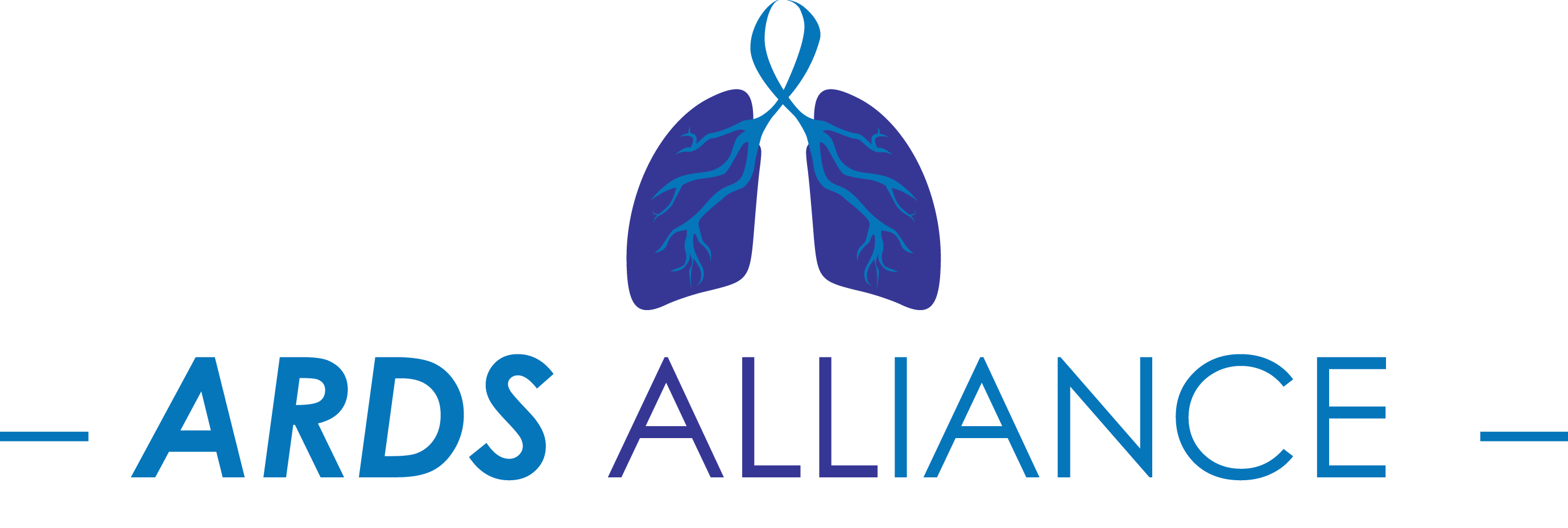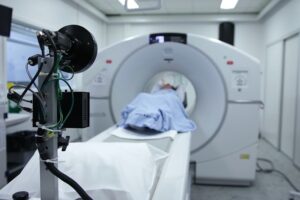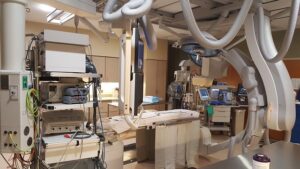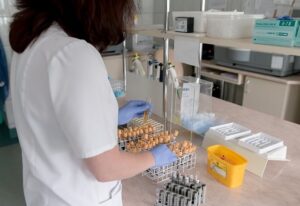How Immune Modulation May Help in Treating ARDS
How Immune Modulation May Help in Treating ARDS
Acute Respiratory Distress Syndrome (ARDS) is a life-threatening condition characterized by rapid onset of respiratory failure due to inflammatory processes in the lung. This syndrome often arises from a range of precipitating factors such as pneumonia, trauma, sepsis, or aspiration. Despite advances in medical treatment, ARDS remains a significant challenge, primarily due to the host’s complex immune response and the resultant pulmonary inflammation. The concept of immune modulation has emerged as a potential therapeutic strategy that may hold promise in the management of ARDS, aiming to balance the immune response and minimize lung damage.
Understanding how immune modulation can help in treating ARDS requires a deeper look into the pathophysiology of the disease. The body’s immune system reacts to injury or infection through a cascade of biochemical signals, leading to inflammation. In cases of ARDS, this inflammatory response can become dysregulated, resulting in excessive inflammation, lung tissue damage, and impaired gas exchange. Immune modulation seeks to rectify this imbalance either by dampening an overactive immune response or by enhancing the body’s ability to heal itself. This article delves into the mechanisms of immune modulation and its implications for ARDS treatment, highlighting ongoing research, potential therapies, and the benefits these may bring to patients grappling with this debilitating condition.
Understanding ARDS: Pathophysiology and Immune Response
ARDS initiates with an underlying injury to the alveolar-capillary membrane, denoting the starting point of acute lung injury (ALI). This injury invites an influx of immune cells such as neutrophils and macrophages, which release pro-inflammatory cytokines like TNF-α, IL-1β, and IL-6. While these cytokines are essential for defense against pathogens, their overproduction leads to increased vascular permeability, pulmonary edema, and impaired oxygenation — hallmarks of ARDS.
The inflammatory process can be broadly categorized into two phases: the acute phase and the fibroproliferative phase. In the acute phase, significant neutrophilic infiltration occurs, resulting in the formation of hyaline membranes and decreased surfactant production. Subsequently, in the fibroproliferative phase, the body attempts to repair the damaged alveolar epithelium, which can lead to fibrosis and long-term impairment if the inflammatory state persists. This ongoing inflammation highlights the need for therapeutic strategies that can either support a healthy immune response or actively modulate it to prevent tissue damage.
- Acute phase: Characterized by neutrophil migration and cytokine release, leading to alveolar damage.
- Fibroproliferative phase: Involves attempts at repair, which can result in fibrosis if inflammation does not subside.
- Key cells involved: Neutrophils, macrophages, lymphocytes, and their interplay in the inflammatory cascade.
Immune Modulation: A Therapeutic Approach
Immune modulation in the context of ARDS focuses on manipulating the immune response to restore balance. The objective is to reduce pathogenic inflammation while preserving essential immune functions. This can be achieved through various strategies, including the use of corticosteroids, immunosuppressive agents, or monoclonal antibodies designed to target specific inflammatory pathways.
Corticosteroids, for example, have demonstrated efficacy in attenuating inflammation, thereby improving clinical outcomes in patients with ARDS. The RECOVERY trial has shown significant survival benefits in COVID-19 patients with severe ARDS who were treated with dexamethasone. Corticosteroids reportedly work by inhibiting the synthesis of pro-inflammatory mediators while promoting the expression of anti-inflammatory agents, thereby hastening recovery and reducing mortality.
Other therapeutic avenues include the use of immunomodulatory agents such as tocilizumab, an interleukin-6 receptor antagonist, which can down-regulate the cytokine storm that often accompanies severe infections. By dampening this overactive response, such treatments can mitigate damage to the pulmonary architecture and lead to improved oxygenation. Furthermore, emerging therapies that target specific immune pathways hold promise, as they could potentially provide a more tailored approach to managing ARDS, adapting to the unique immune profile of each patient.
- Corticosteroids: Attenuate inflammation; shown to improve outcomes in ARDS associated with COVID-19.
- Immunomodulatory agents: Target specific pro-inflammatory mechanisms to reduce cytokine storms.
- Personalized medicine: Evaluating individual immune responses to optimize treatment options.
Current Research and Clinical Trials
Numerous clinical trials are underway to better understand the role of immune modulation in ARDS treatment. Ongoing studies not only examine existing medications but also explore novel agents that may offer additional benefits. Research focuses on targeting various pathways involved in immunopathogenesis, such as the JAK-STAT pathway, complement activation, and other immune signaling pathways.
One promising area of research involves the application of mesenchymal stem cells (MSCs), which possess unique immunomodulatory properties. Clinical evaluations are exploring their potential in reducing lung inflammation and promoting tissue repair in ARDS patients. The idea is that MSCs may interact with immune cells to shift the immune response toward a more regenerative state, thus accelerating recovery.
Furthermore, the ongoing exploration of biomarkers that can predict patients’ responses to specific immunomodulatory therapies could revolutionize treatment approaches. By identifying patients who are most likely to benefit from a particular treatment, clinicians can make informed decisions that ultimately enhance patient care and outcomes.
- Clinical trials: Investigating the efficacy of various immunomodulatory drugs and interventions.
- Mesenchymal stem cells: Studying their potential for reducing inflammation and aiding repair.
- Biomarker identification: Aiming for precision medicine tailored to individual patient needs.
Integrative Approaches to Care
While pharmacological interventions offer significant promise in the treatment of ARDS, integrative approaches should not be overlooked. These encompass supportive care measures that improve overall patient outcomes and enhance recovery. Mechanisms include optimizing ventilation strategies, utilizing lung-protective ventilation protocols, and ensuring adequate nutritional support for patients who may be in a hypermetabolic state.
Additionally, multi-disciplinary care teams play an essential role in managing ARDS. Such teams typically include respiratory therapists, nutritionists, pharmacists, and other specialists who collaborate to create a comprehensive care plan tailored to individual patient needs, which may significantly aid in recovery and reduce the incidence of adverse outcomes.
- Supportive care strategies: Including lung-protective ventilation and nutritional support.
- Multi-disciplinary teams: Collaboration between specialists enhances patient outcomes.
- Psychosocial support: Addressing the mental health needs of ARDS patients can alleviate anxiety.
Patient and Caregiver Education
Education plays a critical role in managing ARDS, not only for healthcare providers but for patients and caregivers as well. It is crucial for patients to understand the nature of their condition, possible treatment options, and the importance of adhering to prescribed therapies. Knowledge about ARDS can empower patients and caregivers to engage actively in care, adhere to protocols, and monitor for signs of deterioration.
Healthcare providers should prioritize open communication, encouraging patients and families to ask questions and voice concerns. Written materials, videos, and workshops can all serve as tools to enhance understanding, helping demystify the complex nature of ARDS and the role of immune modulation in treatment. Implementing supportive counseling may also provide emotional reassurance to patients facing the stress and anxiety often associated with a diagnosis of ARDS.
- Patient education: Essential for understanding the disease and treatment process.
- Open communication: Encouraging questions and providing reassurance enhances patient engagement.
- Supportive counseling: Addressing emotional needs alongside physical treatment.
FAQs about Immune Modulation and ARDS
1. What is immune modulation in ARDS?
Immune modulation refers to therapeutic strategies aimed at adjusting the immune response to restore balance. In ARDS, this may involve dampening excessive inflammation or enhancing protective responses to promote healing.
2. Are corticosteroids effective in treating ARDS?
Yes, corticosteroids such as dexamethasone have demonstrated efficacy in reducing inflammation and improving survival rates in ARDS patients, especially in those with COVID-19 related complications.
3. What potential benefits do mesenchymal stem cells offer for ARDS?
MSCs possess unique properties that allow them to interact with immune cells, potentially helping to reduce lung inflammation and promote repair of damaged tissue in ARDS patients.
4. How can I support a loved one with ARDS?
Providing emotional support, facilitating education about the condition, attending appointments together, and assisting with daily care can greatly help a loved one dealing with ARDS.
Conclusion
Immune modulation presents a transformative approach to the treatment of ARDS, addressing the underlying inflammatory processes shaping this condition. Emerging research shows great promise in utilizing existing medications and exploring novel therapies that target specific immune pathways. By fostering a deeper understanding of ARDS and promoting integrative, patient-centered care, we can make strides in improving outcomes for those affected by this challenging syndrome.
It is essential that as ARDS becomes better understood, patients and healthcare providers work collaboratively to engage in evidence-based practices that offer hope and healing. The commitment to ongoing research, combined with comprehensive education and support, can pave the way for improved management strategies, ultimately enhancing the quality of life for individuals suffering from ARDS.
As we move forward, the integration of scientific advancements and compassionate care will be pivotal to ensure that those impacted by ARDS have the most effective treatment necessary in their battle for recovery.
References:
- Berstein, M., et al. (2020). *Corticosteroids in COVID-19: Be Careful with the CRASH Trial* – Link
- Schots, A., et al. (2019). *The Role of Mesenchymal Stem Cells in Acute Lung Injury and Repair* – Link
- Wang, W., et al. (2021). *Immune Modulation in COVID-19* – Link
- Ranieri, V. M., et al. (2012). *Acute Respiratory Distress Syndrome: The Berlin Definition* – Link
About ARDS and Post-ARDS
ARDS (Acute Respiratory Distress Syndrome) is a life-threatening condition typically treated in an Intensive Care Unit (ICU). While ARDS itself is addressed during the ICU stay, recovery doesn’t end with discharge; patients then embark on a journey of healing from the effects of having had ARDS.
Disclaimer
The information provided in ARDS Alliance articles is for general informational and educational purposes only and is not a substitute for professional medical advice, diagnosis, or treatment. While we strive to present accurate, current information, the field of Acute Respiratory Distress Syndrome (ARDS) and related healthcare practices evolve rapidly, and ARDS Alliance makes no guarantee regarding the completeness, reliability, or suitability of the content.
Always seek the advice of qualified healthcare professionals with any questions you may have regarding a medical condition. Never disregard professional medical advice or delay seeking it because of information you read in ARDS Alliance articles. ARDS Alliance, its authors, contributors, and partners are not liable for any decision made or action taken based on the information provided in these articles.
About ARDS Alliance
Our mission is to improve the quality of life for ALL those affected by ARDS.
The ARDS Alliance is a non-profit committed to raising awareness and enhancing the understanding of Acute Respiratory Distress Syndrome (ARDS), a severe lung condition often occurring in critically ill patients. Through developing alliances, it unites various organizations and experts striving to improve care and support research aimed at finding more effective treatments. Their efforts include educating the public and healthcare providers about ARDS symptoms, risk factors, and advancements in treatment, ensuring better patient outcomes and resource availability.

“As the President of ARDS Alliance, I am dedicated to improving the lives of patients suffering from acute respiratory distress syndrome. Through our advocacy efforts and partnerships with medical professionals, we strive to raise awareness and support research for better treatment options. Together, we can make a difference in the fight against ARDS.”
~ Paula Blonski
President, ARDS Alliance






